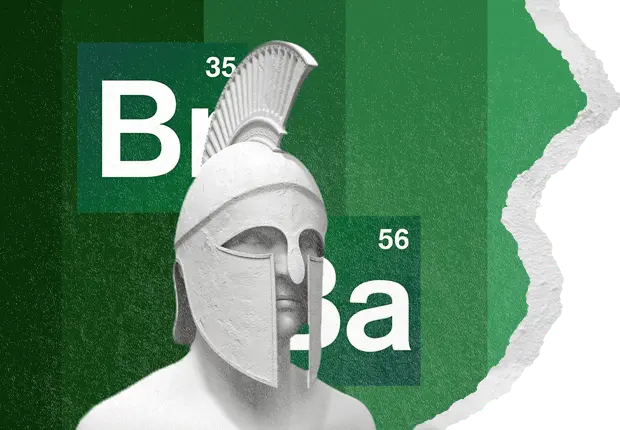Break Bad News Like a Spartan
Sh*t happens, and when it does, it’s good to be a man about it. Here’s a lesson from the Spartans on how to do it.
Late in the Peloponnesian war, the Athenians rallied and defeated the Spartan fleet at the battle of Cyzicus, driving their ships to the shore. The Spartan supreme admiral, Mindarus, went down fighting in a bloody struggle on the beach. The entire Spartan fleet was destroyed, 80 ships.
This was very bad news.
The Spartan left in charge pulled out a scytale, their primitive message encryption device, and dashed off a famous letter to the authorities back home, containing only 12 words. We’ll take it piece by piece.
“Ships gone.”
Deliver the worst news first. Does he write “We write with unfortunate news…,” or “Fate is fickle…” or anything that might soften the blow here? No. Does he elaborate with details? “In a hard fought sea battle, where Sparta’s finest…”? No. That’s all obvious.
“Mindarus Dead.”
Find the second worst news, and say that second, if there is any. Take a deep breath, don’t lose nerve, and keep going. As the news giver, you need to give people a scope of the badness as quickly as possible.
“The men starve.”
Spell out the implications. Allow the reader to imagine the situation enough to get a scope of what they (and you) are dealing with. Think about it: this, and all the statements prior to it, are actionable. (Need ships, need new admiral, need food, etc.).
“At our wits’ end what to do”
Include everything you have done so far. It may not be obvious, but the above statement is Spartan for “We have tried everything our training instructs us to do, including consulting locals for assistance, selling excess supplies, and spear fishing in the shallows. It is our opinion that we require your help, as any further remedy (such as surrender) would exceed my authority as commanding officer.”
Here’s the original Doric Greek message, 12 words (there’s a contraction in there):
Ἔρρει τὰ κᾶλα. Μίνδαρος ἀπεσσύα. πεινῶντι τὤνδρες. ἀπορίομες τί χρὴ δρᾶν.
The letter was intercepted by the Athenians. They cracked the code and read the message. Even though they were exultant about their victory, they marveled at their enemies’ laconic brevity (“laconic,” as you know, comes from Laconia, the Spartans’ homeland). They shared the message with the other Greeks and it became famous.
Xenophon tells the story in his Hellenica. I cover it as well, on the Cost of Glory podcast, in the Life of Lysander. In the aftermath of Cyzicus, the Spartan authorities sued for peace, which the Athenians rejected.
When Athens eventually lost the war, Sparta installed the oligarchic regime of The Thirty. One of the leaders of The Thirty, Theramenes, was a commander at Cyzicus, alongside both Alcibiades and Thrasybulus, the man who would go on to topple The Thirty in a democratic counter-coup. How sweet it is for a state to unite all its forces in a common effort, instead of turning their spears on each other.
But you, Anon, learn to deliver bad news well, like the Spartans did, and you will develop the habit of doing it more. This is useful, because hard, honest exchanges like these are one of the things that separate the serious men from the trivial.

































